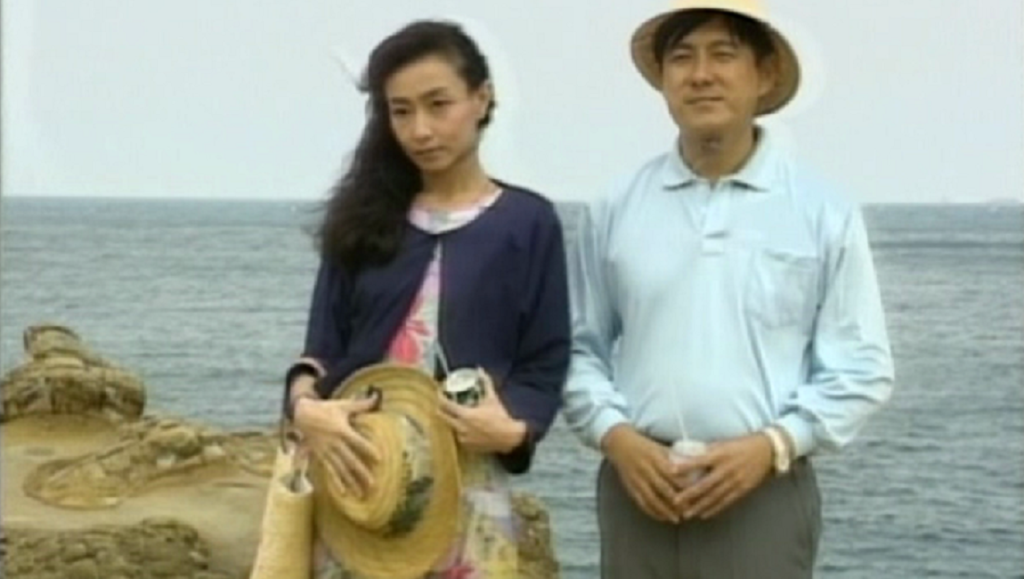Prior to the solidification of Tsai Ming-liang’s career, which is arguably realized with his first Lee Kang-Sheng collaboration (in the television commissioned project Boys), there was Li Hsiang’s Love Line, a rather frugal yet quietly evocative film which offers an intriguing relationship explicated through a formal usurping and disruption of any expected union of characters, and an ever quieter subversion of the sexualized gaze. The narrative is as simply summed up as the economical blocking of the second shot: Li Hsiang is having her palm read, her future expounded on, the suggestion of which simultaneously appears within the same frame — Mr. Tao, her prophesied lover, and his children offer prayers at an altar. Though unsure of their place with one another, and unsure of their feelings towards one another, still, a chary affair ensues. As an hour long special, the work is light and brisk in its implications; melodrama without the heady consequences. These television projects are to be seen, of course, as a manner of prototyping, many tinges of later, Tsai’s denser visions sporadically glimpsed through these more unfocused machinations.
As an hour long special, the work is light and brisk in its implications; melodrama without the heady consequences.
The opening shot of this Love Line, much like the last, finds its focus in the cascading of foregrounded action: in the first, there is a plane descending, birds scuffling close to the lens; in the last, Li Hsiang, rides her bicycle on the far side of the road, as the camera pulls away, traffic obscuring the view. Much like the plane, arriving at a new, unknown destination, one of total inconsequence to the viewer, Li Hsiang appears to be heading in a similar direction. Just prior to this shot, in a quick culmination of narrative strings, she has rejected Mr. Tao, who through the trials and tribulations of their insignificant affair can really only see Li Hsiang as an expectation, projected onto him by family. In fact, Tsai leaves very innocuous, floating hints of Mr. Tao’s possibly unsettled sexuality, discursive cuts to distant male bodies suggested with Kuleshovian implicitness, along with rather intimate, near-romantic affectations demonstrated in brief encounters with friends: the eroticism is suppressed to a degree that at moments it’s absence feels almost palpable, and allows the failed romance to conclude quite evocatively. Never is Li Hsiang possessed with as much temptation as these men. Mr. Tao, though, evades his allures, objectifying Li Hsiang as decor. Assured of his duplicitousness, she rejects his mute return to reconcile — he is to be disregarded as a voice, seeking as he does t to merely assimilate into the life of another. Filled with aplomb, she walks away, exiting the frame of her own accord, repudiating the prognosis of a crinkle down her palm in favor of her whole self.


Comments are closed.